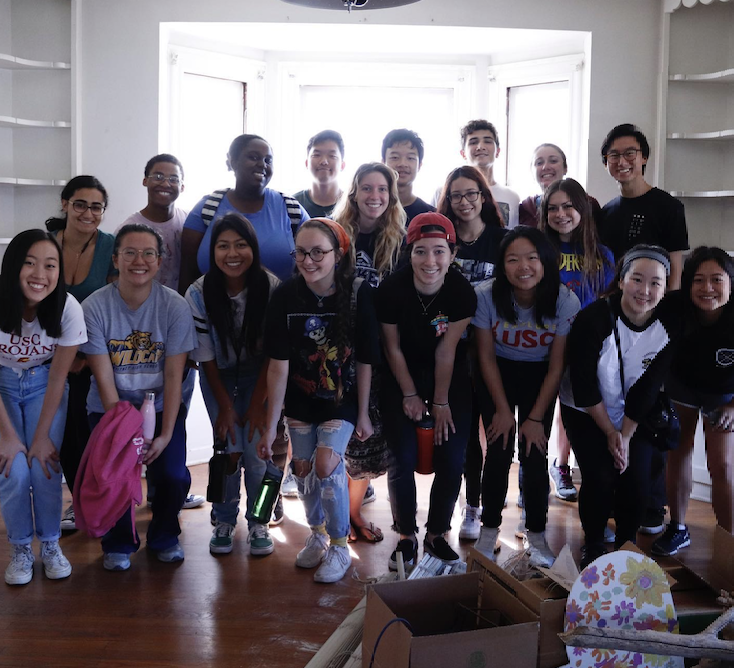Trojan Shelter set to open doors in November

open on Nov. 3.
(Photo courtesy of Trojan Shelter)
Trojan Shelter will open its doors at St. Mary’s Episcopal Church in Koreatown on Nov. 3 to six students in the South Los Angeles area in need of homes in an effort that is student created and run. Senior Abigail Leung and junior Esther Cha created the shelter, a place for students experiencing homelessness to live until they transition into more permanent housing, after taking a class last year with Cara Esposito, a professor in the Price School of Public Policy.
During one lesson, Esposito invited Louis Tse, the founder of Bruin Shelter at UCLA, to speak to students about how he founded the first shelter in Los Angeles for college students experiencing homelessness.
Immediately after, Cha and Leung told Esposito they were interested in establishing a shelter for USC students, approaching her with a concrete plan soon after.
“I never in my wildest dreams thought [Cha and Leung] would come to me nine months later and say, ‘We found a space. We want to do this,’” Esposito said.
Now Esposito serves as Trojan Shelter’s faculty mentor and Tse is a mentor through Students4Students, formerly Bruin Shelter, the shelter’s parent nonprofit organization.
After founding Trojan Shelter in Fall 2018, Cha and Leung assembled a six-member executive board to help them with the processes of securing the shelter’s location, renovating the space and recruiting volunteers to help run the shelter, among other tasks.
“It’s been a long process,” Esposito said. “Not in any fault of theirs. It’s just super challenging navigating the city on this issue. They’re basically building a new company, so it’s a big lift. So it’s been a lot of having to deal with permitting and architects and lease agreements and government principles and raising money. It’s just a lot, [because] they’re [also] full-time students.”
Upon its opening, the shelter will be able to house six students who are enrolled in at least two units for the academic year in the first floor of the church, which is residentially zoned. In the future, Cha and Leung hope to house 12 to 16 students in Trojan Shelter, though expanding the shelter space would require rezoning and renovations.
For now, Leung said she and Cha hope to find a home for as many students they can as soon as possible, opening more space as they move forward.
Now that the shelter is almost ready, volunteers are completing their training to assist residents during daily operations and overnight shifts as well as putting final decorative touches on the shelter.
“When we first started Trojan Shelter, we wanted to find a space that we would personally love to live in that would feel like a home to us, and we really feel like this is a perfect space for that,” Cha said.
In the days leading up to its opening, Trojan Shelter is gathering resources like school supplies and food for the students who will live there.
Cha and Leung are also working to partner with on-campus organizations to host supply drives, including a food drive with the Trojan Knights and the USC Helenes during their respective Tommy and Hecuba Watches during rivalry week and a school supply drive with the Korean Christian Ministry. Last semester, they worked with Alpha Phi Omega, a service organization, to expand the shelter’s food pantry.
But beyond partnerships with other on-campus organizations, Cha and Leung hope that the University will get involved and inspire other campuses to address student homelessness.
“Our vision down the line is to make this an established partnership with USC,” Cha said. “And hopefully, other universities around the nation will follow suit. In terms of short-term goals, our goals are to open, to expand and to solidify the idea and the fact that there are a lot of students experiencing homelessness. And hopefully once people realize it is an issue, they’ll start doing more things about it.”
Applications for housing are open to all students in the area, not just USC students. Those who are not offered bedspace immediately will be sent additional resources and will be reconsidered when a space becomes available.
The application for housing can be found online at trojanshelter.org.

